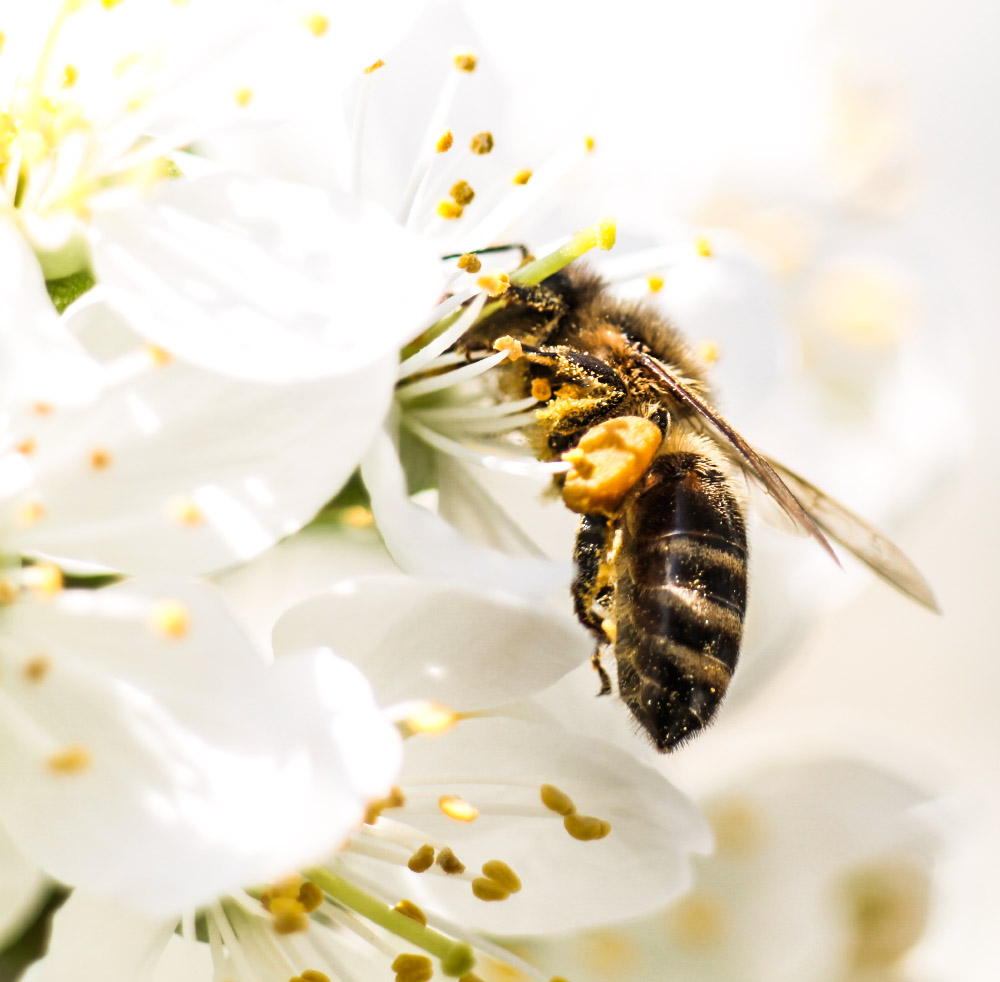Pollen

About Pollen
Bees - Legends and Lore
The oldest remains of bees known to exist are preserved in a small bit of amber kept at the American Museum of Natural History in New York. The bee inside is believed to be over 80 million years old.Throughout the ages the bee has been revered by man. The Bible, the Talmund, the Torah, the Koran (the code of Islam), along with the scrolls of the Orient, the writings of Ancient Greece and Rome, the legends of the Russian and Slavic people, even the relatively recent Book of Mormon (1830), all praise the industrious and healing foods created by her and found in her beehive. In the Bible alone, the bee's nectar is mentioned 68 times.
Traveling back in time, we find the honeybee was revered, even deified in many religious cultures. The book of the Hindu's, the Rig-Veda, penned in Sanskrit between 2000 and 3000 BC, talks of bees almost with awe.
CALL US NOW!
570-537-2381
Components Of Bee Pollen
Pollen itself is the male seed of flowers, required to fertilize the plant. Every single flower in the world puts forth a dusting of pollen, as do many orchard fruits and agricultural crops. Bees are responsible for the pollination of more than 80 percent of the earth's foliage.
Bee Pollen is abundant with vitamins, minerals, amino acids and more. It contains all the essential components of life, and is rich in rare and precious compounds which work in a deep and lasting fashion. Keep in mind that pollen composition may vary quite a bit in different localities in this country, as well as in the world. Some of the chief vitamins found in bee pollen are:
Main Ingredients: Protein 21.2 %, Carbohydrates 48.5 %, Fatty acids 9.9 %, Ash 3.5 %, Fiber 14.2 %
Thiamine (vitamin B1) - Indicated for the treatment of the toxic effects of alcohol and certain medicine, the curing the edemas, the treatment of shingles, and heart conditions myocarditis and tachycardia, and in regimen for diabetes.
Riboflavin (vitamin B2) - In opthomology, necessary to cure conjunctivitis, disorders of retinal adaption, some skin diseases and alleviate migraines.
Pyridoxine (vitamin B6) - Required for the formation of hemoglobin and used to combat nervousness, fatigue, muscular weakness, brain tumors, anemia, Parkinson's disease, arteriosclerosis of the brain, and radiation sickness.
Nicotinic Acid (Nicotinamide) - Acts on the formation of blood, is used in the treatment of toxic overload, diabetes mellitus, gastrointestinal problems, asthma, neuralgia, fights migraine and tinnitus, and lower cholesterol.
Pantothenic Acid (Part of B-complex) - Effectively speeds the cure of wounds, gangrene, various ulcers, herpes, bedsores, inflammatory infections of the mouth, colds, bronchitis, infectious hepatitis and minor skin problems.
Ascorbic Acid (vitamin C) - Stimulating antitoxic effects. Beneficial against colds, respiratory distress, and is useful in metabolizing calcium.
Retinol (vitamin A) - Effective against infections, dry eyes, and night blindness.
Tocopherol (vitamin E) - Assists oxygenation of the cellular level and fights sterility. Has anticoagulant properties and improves blood circulation.
Something you should know about pollen and allergies is that a single source "local" pollen is documented as almost always being deficient in one or more elements. It is necessary to blend pollens from many sources to ensure a full complement of all elements. This is the way we pack all of our pollen! A blend of pollens is best for allergies!
Benefits Of Bee Pollen
Vitamins and minerals are not all that bee pollen offers. It is also rich in proteins, free amino acids, hormones and trace elements.
No other food on earth offers such a broad spectrum of nutrition so naturally.
All over the world honeybee pollen is recognized not only as an ideal food source, but as a food source with wide-acting medicinal properties, including:
1. Restore lost sexual desire and energy.
2. Alleviate menstrual cramps.
3. Speed the healing of wounds.
4. Alleviate depression and fatigue.
5. Normalize digestive problems.
6. Alleviate migraine headaches.
7. Relieve various prostate problems.
8. Improve fertility in females and males.
9. Reduce cholesterol.
10. Greatly improve energy levels.
11. Weight Control
12. Using bee pollen daily can help you build up a resistance to airborne pollen allergies. Modern researchers today are proving what our ancestors already knew yesterday; that eating bee pollen every day will keep many maladies at bay.
